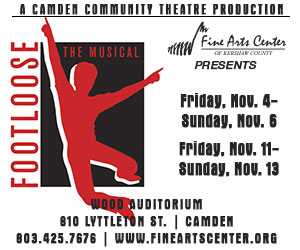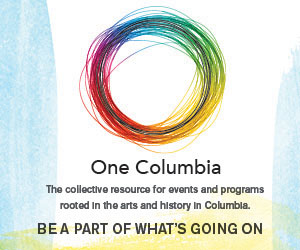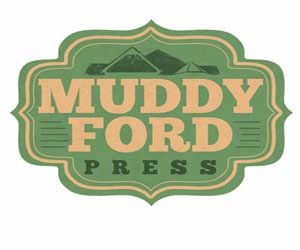The Eclectic Path of Danielle Howle
By Kyle Petersen
There’s a song that Danielle Howle has taken to playing live over the last few years – a song by another musician from Columbia, Chris Connor, who died a while back, called “Being Poor.” It’s a tough, blues-based number with the refrain lamenting “what a bitch it is to be poor.” In June of 2011, members of the Jasper staff watched Howle play the song to less than two dozen people in the now-defunct listening room The White Mule. On New Year’s Eve 2011, Howle played the song (with her new backing band Firework Show) to a crowd of nearly 20,000 people as the opening act for The Avett Brothers. This wild twist of fate is, really, the story of her life.
Since bringing the progressive rock act Lay Quiet Awhile to national and international attention in the early 1990s, Howle has recorded over a dozen full-length albums and EPs – often released by nationally recognized independent labels – and toured across the country with the likes of the Indigo Girls, Elliott Smith, and Ani DiFranco. She’s opened for acts as prominent and diverse as Fugazi, Bob Dylan, and Hootie and the Blowfish. And, yet, despite her storied career, she also speaks matter-of-factly about having not been to a doctor in twelve years and struggling to make a living wage as a musician. She’s always, seemingly, on the brink of something big. Currently Howle is poised to release an exciting two-disc compilation in support of Awendaw Green, where she is the artist-in-residence and where she has re-charged the more experimental rock and roller in herself. Still though, it has been a long, strange journey so far.
Born in Oklahoma to a military family which would move constantly, with time spent in Mississippi, Germany, and the Carolinas during her childhood, “most … in the Columbia area,” she says. Although she started playing in bands at 16, she’s “been singing [her] whole life.” After graduating Spring Valley High School, Howle came to town to attend Columbia College as a theater major. “That was the thing I loved [first],” she explains, and she credits her time there for helping her get more comfortable in her own skin. “I was really shy in a lot of ways, and it was a good place to not be … scared.”
Howle first emerged on the Columbia music scene singing at open mics with a pick-up group called the Blue Laws and quickly drew a buzz due to her powerful and inventive voice – an oddly beautiful instrument which doesn’t really fit into any conventional categories despite drawing from country, folk, and jazz traditions. From the beginning, she was a singular performer with a nervous energy and an in-the-moment charisma that carried through in her often rambling, stream-of-consciousness style. It was then that she started writing songs.
“I wrote in journals from third to tenth grade, and maybe that theater training brought me out of my shell a little bit … I was about 21, and I was like, ‘I think this is what I wanted to do,’” she recalls. Howle started learning how to play guitar and piano to accompany her burgeoning songwriting desire, and before long she had built a strong reputation as a solo performer. What came next, though, is what shot Howle into national prominence.
Lay Quiet Awhile was the progressive rock outfit that brothers Phil and Dan Cook started back in 1986. The brothers had gone through various line-up changes and recorded two EPs, but didn’t really find their stride until Howle entered into the scenario. With Howle’s quirky sensibilities and stop-you-in-your tracks voice, the band was clearly going places. The inclusion of their song “Time Won’t Help” on the 1992 WUSC fundraiser compilation Please No Profanity, (which featured, among others, Hootie & the Blowfish, In/Humanity, and Blightobody), lead to the tune becoming a staple in the station’s rotation and building a bit of momentum for the group.
The group also would have a chance encounter with an unlikely supporter who would change the course of Howle’s career – the Indigo Girls’ singer/songwriter Amy Ray.
The band had picked up a last-minute gig opening for the Ellen James Society in Charleston, and, after they played, Ray, who also runs the well-respected independent label, Daemon Records, approached the group and said “‘I want to sign you, do you know what I’m saying?’ and I said, ‘No, I don’t,’” Howle remembers.
Ray went on to release Lay Quiet Awhile’s only full-length album, 1993’s Delicate Wire, as well as many other subsequent Howle records, giving them great national exposure and an enhanced ability to tour nationally and in the UK. “I never would have been able to do anything without her. She’s a great label boss and leader. She also trained me, by accident, to be a more socially conscious and politically conscious human being [as well], just by being who [she] was,” Howle says. “She broadened my mind and horizons as a person, just with her awesome human being-ness.”
After some lengthy touring, Lay Quiet Awhile called it quits – but Howle was just getting going. Soon after the group disbanded, Howle began collaborating with Blightobody guitarist John Furr on her solo record About to Burst (1996), beginning a musical relationship that would last well into the next decade. “John Furr is more talented and awesome than John Furr will ever realize,” Howle says proudly. “[and he’s] rather unjaded and innocent about it.”
As Danielle Howle & the Tantrums, Howle and Furr, along with drummer Troy Tague and bassist Brian Williams, would record two albums together, Do a Two Stable (1997) and Skorborealis (2002), both on Daemon, and tour across the country over the course of eight years. It was with the Tantrums that Howle was allowed to be the most willfully eclectic, going from country and Americana to heavy progressive indie rock with seamless ease, while also mixing strong world and pop elements into her sound. During this time Howle also released two acoustic full-length albums, 1995’s Live at McKissick Stadium (which featured acoustic versions of Tantrums songs) on Daemon and Catalog in 1999, which was released via the noted Pacific Northwest independent label Kill Rock Stars Records.
The Tantrums became more of a casual, in-town band after Skorborealis came out, but luckily Howle still had musician-friends to help keep her relentless spout of songs going out to the public. It was Hootie and the Blowfish’s lead guitarist Mark Bryan who became her collaborator. Howle had known the band back when they were both in school in Columbia in the early 1990s. She had first met Bryan as a WUSC DJ, and became friends with the entire band once they started playing live. “I used to hang out with Darius [Rucker] in his dorm room, just talking,” she remembers, struck by how incongruous their fame and her memories are now. Of course, the band members were also great fans of her work, and in 2005 Bryan produced and played on much of Howle’s full-length Thank You, Mark, which Howle named in his honor. Rucker also contributed, singing a duet with her on the Etta James cover “If I Can’t Have You.”
Despite all of her years of touring and fantastic support though, Howle was still living the life of a starving artist. While she is quick to point out that her financial difficulties have often been her own fault – “I’ve always put everything I made back into [my career],” she admits, with an edge of determination – it still seems shocking that one of the more famous musicians to emerge out of the Columbia scene over the last two decades still has a hard time getting by. Howle began doing various educational programming in 2001 as a way of making more money, implementing programs at Penn State, College of Charleston, and other schools throughout the Lowcountry and the South Carolina Midlands. In 2006, she even penned a tune for ETV called “Wash Hands,” which is perhaps the best example of how easily she relates to children.
“The educational programming is a challenge for me,” she says. “Children know things that we don’t know, and they are like mysterious creatures from outer space.”
Howle’s life took another fortuitous turn, when she was made the artist-in-residence at Awendaw Green – a position which gives her both a place to live and a place to promote South Carolina artists at the Sewanee Outpost’s weekly barn jams and at the solar-powered swamp house (and makeshift recording studio) along the Echaw Creek deep in the Frances Marion Forest. Howle got the gig through a friendship with Eddie Floyd, who volunteered the swamp house to Howle at the end of 2008 for recording purposes, the results of which Howle released in 2009 as The Swamp Sessions. It is a rough-hewn acoustic record that was originally intended to be just a set of demos. “I made it in about six hours,” she says almost apologetically. “It’s really rough, but in a good way, I think.”
That short, intimate experience sparked a much grander project that has become both Howle and Awendaw proprietor Eddie White’s biggest passions – the next iteration of The Swamp Sessions. Using Howle’s long list of connections and talented friends, the two have orchestrated alchemic musical collaborations between an eclectic roster of South Carolina musicians, with enough songs recorded to fill out a 2-CD compilation. The long, impressive list of contributors includes, among others, Mark Bryan, Edwin McCain, Doug Jones, Cary Ann Hearst, and Josh Roberts, as well as such unlikely contributors as poet laureate Marjorie Wentworth, saxophonist Charlton Singleton, and instrumentalist Dustin Ashenfelder. Almost all of the recordings feature Howle in some capacity, as well as the rhythm section of Firework Show.
Jasper drove out to meet Howle at the Swamp House as various musicians were putting the finishing touches on their contributions to the upcoming record. We met up after driving over a seemingly endless set of dirt roads out in what seemed literally like the middle of nowhere. The rustic outpost sits on a bluff above the creek and gives off the magical feel of a dream-world clubhouse for musicians to come and play together. Outside of the range of cell phones and free from all but the most utilitarian of comforts, this is a place, it seems, where the most surprising of things can happen.
Talking to Howle is, in its own way, just as much of an experience as seeing her perform. She’s a wiry, free-spirited artist to her core, and she punctuates her conversations with whoops, laughs and (forgive the pun) howls. Her on-stage style of nervous, stream-of-conscious storytelling and stage banter that can bounce from brutally honest and tense to downright hilarious and joyous in a matter of minutes is clearly anything but an act. Howle is a live nerve of energy, emotion, and creativity, in a way that clearly explains where the unique way she views the world in her lyrics comes from. Our conversation bounces around from songwriting circles in Nashville and her recent show with the Avett Brothers to the recent protests over SOPA and wily and (sometimes) wicked world of the music business, while various musicians and engineers drive up or stop to ask a question or to give her a progress update.
What’s perhaps most immediately noticeable after settling into this unique experience is how much Howle prefers talking about others – the talented musicians, engineers, and friends who have taught her so much and supported her in so many ways over the years – than herself. She almost can’t help praising the broad swath of characters who have peppered her journey, and she often has comparatively little to say about her own role in her past.
The same cannot be said for her future, though. Howle is most excited when she talks about her new backing band, Firework Show, which plays on her newest full-length album of original material entitled New Years Revolutions. The Charleston band formed in 2005 and d built a reputation for their extended jams that mixed psychedelics, blues, and jazz in a way not unlike Howle herself. Consisting of Zach Bodtorf (guitar/vocals), Brandon Gallagher (drums), Casey Atwater (bass), and Braxton Brown (keys), the group comes across as a looser, more limber version of the Tantrums, and swings with the wild eclecticism as Howle’s oeuvre.
With her new band behind her, Howle sees nothing but a bright, determined future ahead. “I see myself as more progressive now,” she says. “I hope the young people can keep up with me!” In the past, she says, “music industry types have accused me of ‘not knowing who you are, who your voice is,’” something which she no longer worries about. “I’ve decided that maybe my voice is a lot of things. Maybe it’s okay to write country songs, and then write songs that would, like, freak out Wilco. There’s no model anymore. It’s just what do you like, who is gonna come follow you and come visit you, and you don’t have to as huge as the Rolling Stones to make an impact in your community.”
Howle feels that she is just now figuring out her own musical muse, and she plans on following it, “until I find the next beautiful thing,” she says. “This is gonna make it really interesting next 20 years.”
Her immediate plans, once The Swamp Sessions are finally released? “Time to put it in the van again. It’s time to go back out.”






.jpg)
